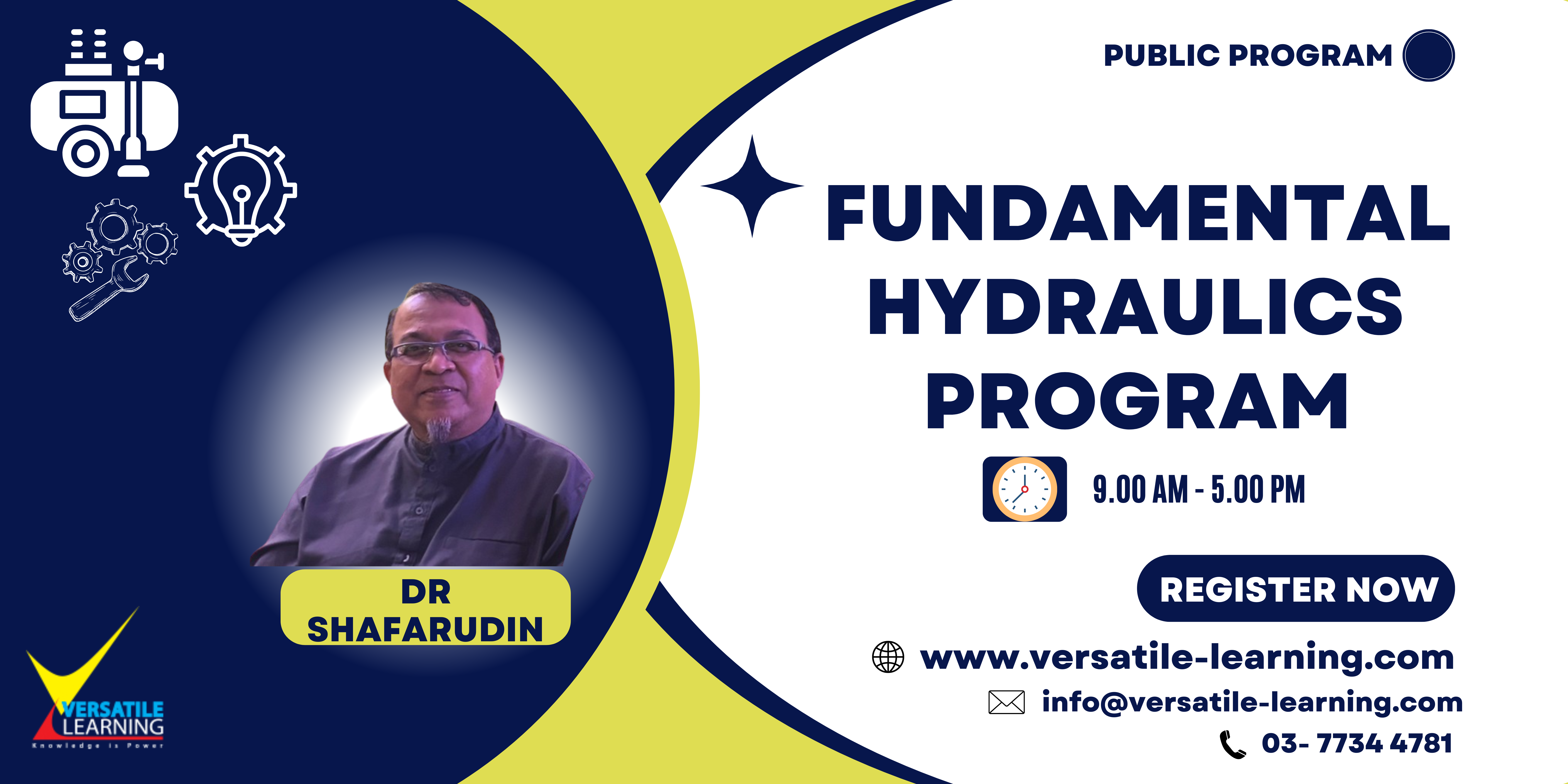Fundamentals Hydraulics covers hydraulic principles, types pf hydraulic fluids and their characteristic. It describes components of the hydraulic system and their functions including filters and strainers, reservoirs and accumulators, pumps, piping, tubing and hoses, control valves, relief valves and actuating devices. This program also covers a variety of cylinders and hydraulic motors.
MEC 007 – Fundamental Hydraulics, 29 & 30 April 2024
MEC 007 – Fundamental Hydraulics, 29 & 30 April 2024
Category:
RM 1,990.00
RM 1,990.00
| Duration: 2 Days |
| Lectures: De Palma Shah Alam |
| Certificate of Completion |
Introduction
Who should attend?
This course was designed for Technician, Engineer and Manager.
Methodology
- Short Lecture Sessions
- Practical Sessions
- Pre-Test
- Post Test
CURRICULUM
This content is restricted to members only. Please log in to view more details
Day One
- The difference between absolute and gauge pressure
- How power is calculated
- Pascal’s Law
- The difference between laminar and turbulent flow
- Main components of a hydraulic system
- The important properties of hydraulics fluids
- How viscosity is measures
- The meaning of the viscosity index
- The effect of fluid temperature on viscosity
- The causes of corrosion and fluid oxidation
- Various type of hydraulics fluids
- The contaminants found in hydraulics systems
- Strainer performance
- Fibrous and Non–Fibrous filter media
- Magnetic Media
- Functions of fluid reservoirs
- The purpose of reservoir baffles
- Various methods of counteracting high operating temperatures
- Important accessories used with reservoirs
- Pressure ratio calculation for a differential-piston accumulator
Day Two
- The chief considerations in hydraulics line selection
- How flow velocity and pressure loss are calculated
- Pipe size schedules
- Types of fittings used in hydraulic systems
- The reason for using steel pipe
- Main advantages of tubing
- The classification of directional control valves
- How manually operated valves work
- Direct-acting and pilot-operated valves
- The operation of a check valve, a spool valve, a three-way valve, a four-way valve and a rotary valve
- Functions of a pressure-control valve, a pressure-
relief valve and a pressure-reducing valve
- The operation of a spool valve, a poppet valve and a sequence valve
- The purpose of holdings valves, unloading valves and counterbalance valves
- The operation performed by flow-control valves
- How pressure compensation and temperature compensation work
- Hydraulic cylinder and double-acting cylinder
- The difference between ‘pull-type’ and ‘push-type’ single-acting cylinders
- The construction of a hydraulic cylinder
- Various methods of mounting cylinders
- How to calculate the flow capacity of a hydraulic cylinder
- The classification of hydraulic motors
- How to torque of a hydraulic moto is calculated
- Horsepower output of a hydraulic motor
- The factors and other considerations affecting motor selection
- The construction of a hydraulic motor
- The operating principles of a gear motor, a vane motor and a piston motor
About Instructors
RM 1,990.00
| Duration: 2 Days |
| Lectures: De Palma Shah Alam |
| Certificate of Completion |

